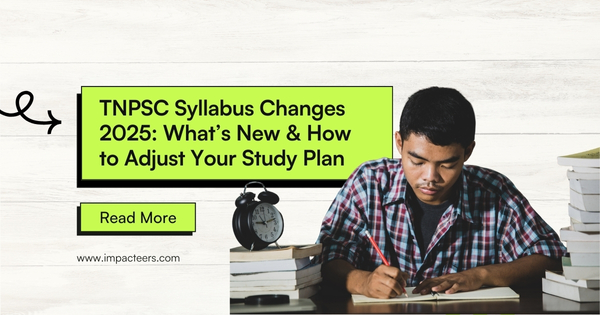Easy Study Hacks 2025 feels different from what it used to be. Back in the day, students only had books, a desk, and maybe a library. Now? Notifications, online classes, and TikTok are always calling your name. Honestly, sitting down to focus is harder than ever.

But here’s the thing: you don’t always need to grind for hours. A few smart habits can cut your study time in half. In this blog, I’ll share 10 easy study hacks every student must try in 2025. These aren’t boring textbook rules—they’re real tips that students (including me and my friends) actually use.
Visit us >>>https://www.impacteers.com/home/courses
1. Pomodoro, But Make It Fun
The Pomodoro method isn’t new, but it still works. Study 25 minutes, break 5 minutes. Simple. The twist in 2025? Apps like Forest let you grow a virtual tree while you stay focused. If you leave the app early, your tree dies. Nobody wants that.
It sounds silly, but it makes you care about sticking to your timer. Try it for one week—you’ll be shocked how much you finish.
2. Digital Flashcards
Cramming the night before an exam? Been there. Flashcards are the old-school solution, but digital flashcards are way better. I personally use Quizlet. My friend swears by Anki. Both adjust the cards automatically so you review tough stuff more often.
It feels less like studying and more like playing a memory game.
3. Draw It Out (Mind Maps)
Some subjects just don’t click until you see them. That’s where mind maps help. Grab a sheet of paper or use an app like XMind. Put the main idea in the center, then branch out.
When I studied history, I made a huge mind map of World War II—dates, leaders, events—all connected. During the exam, the visual picture popped into my head. Super helpful.
4. Active Recall (Don’t Just Reread)
I’ll be honest: highlighting notes feels productive, but it doesn’t work. The best trick? Close your notes and try explaining the topic out loud. It’s called active recall.
It feels awkward at first—talking to yourself—but it forces your brain to pull information out instead of just looking at it. That struggle is what makes it stick.
5. Two-Minute Rule
If you keep putting things off, try this: just do two minutes. Literally. Open your book, solve one math problem, or write the first sentence of an essay.
Most of the time, once you start, you keep going. The hardest part is beginning.
6. Cornell Notes
Messy notes are useless. The Cornell Method fixes that. Divide your page into three sections: notes, keywords, and summary.
I used it in college and, trust me, reviewing before exams became 10x easier. If you like digital tools, Notion even lets you set up Cornell-style templates.
7. Music That Helps (Not Distracts)
Studying with music is tricky. If I put on my favorite songs, I end up singing instead of working. What works better? Lo-fi beats or instrumental playlists.
There are tons on Spotify and YouTube. Some people like white noise or even rain sounds. Experiment until you find what calms your brain.
8. Teach Someone Else
This one is gold. If you can explain a chapter to your younger sibling or even a friend, you really understand it. When I prepped for finals, I used to “teach” my notes to my roommate. We both ended up learning.
No one around? Teach your dog. Or stand in front of the mirror. It works.

9. Fix Your Study Space
Your environment matters more than you think. If your desk is cluttered with snacks, phone, and random stuff, your brain can’t focus.
Clean your space. Add good lighting. Keep water nearby. Personally, I keep only my laptop, notebook, and pen on my desk when I need deep focus.
10. Use AI, But Don’t Abuse It
AI tools are everywhere now. I get it—ChatGPT, Grammarly, Notion AI—they’re useful. But here’s the deal: they’re helpers, not replacements.
If you ask AI to write your whole essay, you won’t learn a thing. But if you use it to explain a tough concept in simpler words, it’s like having a patient tutor. Use it wisely.
Conclusion
Studying in 2025 doesn’t mean endless hours at your desk. With these 10 easy study hacks every student must try in 2025, you can work smarter, not harder.
Start small. Try Pomodoro for a week. Or switch your notes to Cornell style. Soon, these habits add up—and you’ll realize studying doesn’t have to be painful.
So, which hack will you test first?
FAQs
1. Do these hacks actually work?
Yes, especially active recall and spaced repetition. They’re proven by research and real students use them every day.
2. How long should I study daily?
Depends. For most students, 2–4 focused hours are better than 8 distracted ones.
3. Can AI really help me study?
Definitely, but it should guide you—not do the work for you.
4. How do I remember facts quickly?
Digital flashcards with spaced repetition are the fastest way.
5. Should I always listen to music while studying?
Not always. If it distracts you, skip it. But lo-fi beats or white noise can help some students.
6. What’s the best hack for exams?
Practice tests. They mimic the real exam and train your brain to recall under pressure.


Post Comment